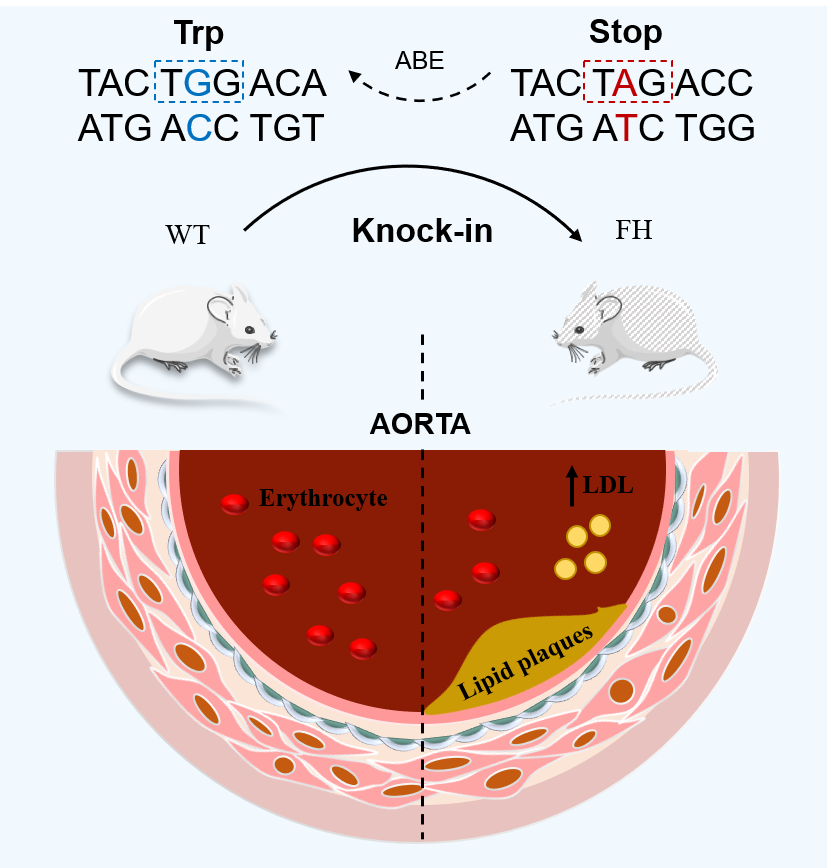
Recently, the Key Laboratory of Veterinary Chemical Drugs and Pharmaceutics team of SHVRI, CAAS has made significant strides in the field of the molecular treatment of monogenic inherited diseases, and the relevant findings were published on The FASEB Journal.
Background
Familial hypercholesterolemia is a monogenic inherited disease characterized by disturbance of cholesterol metabolism, mainly manifested by elevated levels of low-density lipoprotein cholesterol and atherosclerotic lesions, which can lead to early cardiovascular disease and seriously endangering the health of humans. The primary causative defects in approximately 90% of familial hypercholesterolemia cases are mutations or deletions in the plasma membrane low density lipoprotein receptor (LDLR) encoding gene. Adenine base editor enables direct, irreversible conversion of one base pair to another at a target genomic locus without requiring double-stranded DNA breaks, which have shown great therapeutic potential in the field of monogenic inherited diseases.
Progress
In this study, researchers constructed a humanized mouse model based on a reported pathogenic nonsense mutation of Ldlr gene from patients with Familial hypercholesterolemia. The generated humanized mice were confirmed with genotyping as well as protein expression of LDLR. When induced by a high-fat diet, homozygous mice recapitulated cholesterol metabolic disorder and clinical manifestations of atherosclerosis associated with FH patients, including high plasma low-density lipoprotein cholesterol levels and lipid deposition in aortic vessels. To explore the repair of the mutation and thus the treatment of the disease, researchers constructed in vitro a cell model harbouring the pathogenic point mutation sequence in the human Ldlr gene to optimize the adenine base editor for molecular therapeutics. In vitro results showed that the editing efficiency of NG-ABE9e on target bases could reach 50%, suggesting that NG-ABE9e has the potential to correct base mutations and mediate gene therapy for familial hypercholesterolemia. Taken together, this study paves the way for adenine base editor-mediated molecular therapy for familial hypercholesterolemia.

Funding
This work has received supports from the National Natural Science Foundation of China. The paper’s first author is Jing Liu, a doctoral candidate student from Shanghai Veterinary Research Institute, CAAS. Dr. Mi Wang and Prof. Feng Gu are the co-corresponding authors of this article.

